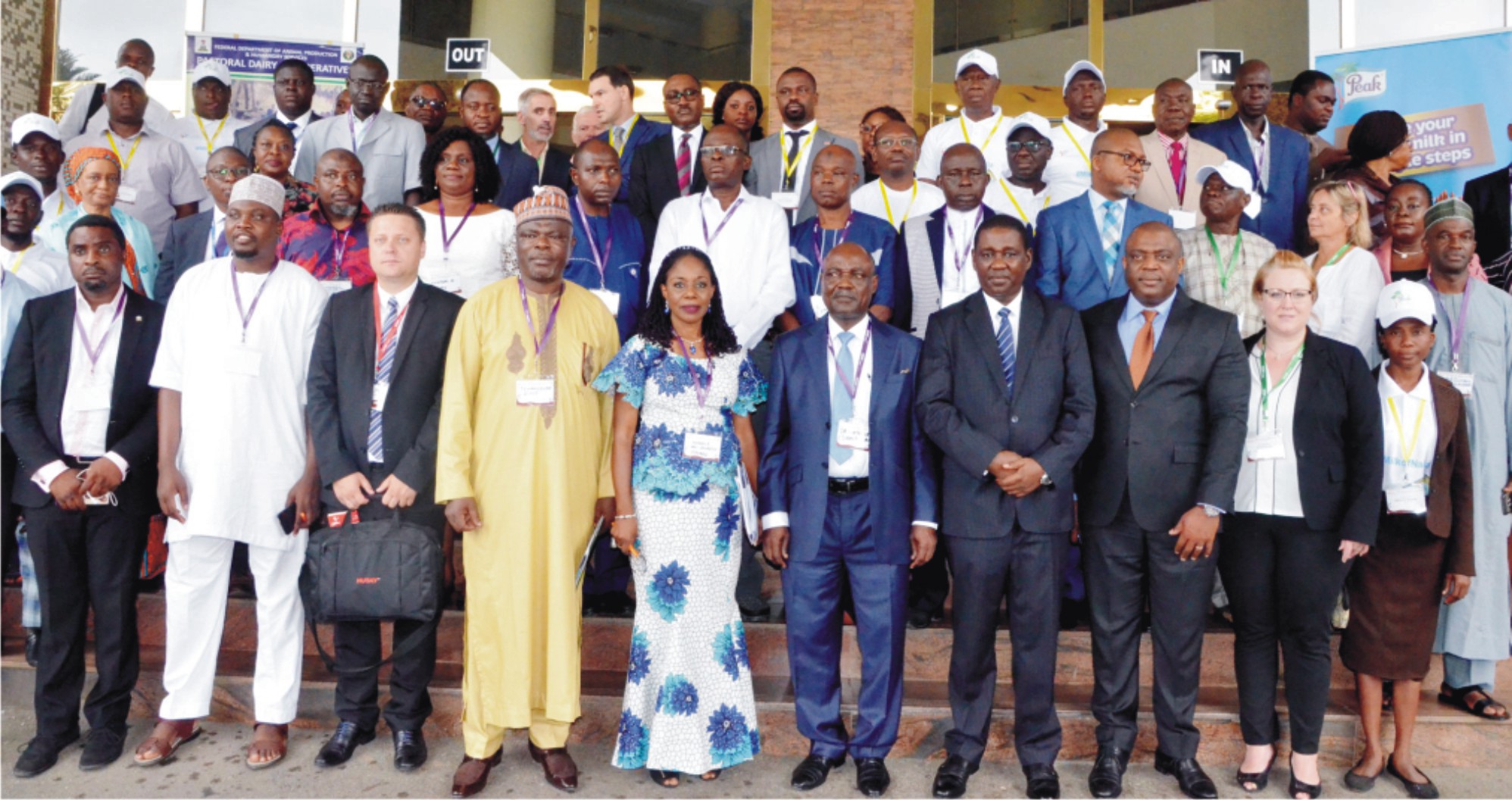Business
FG Targets $150 Billion Non-Oil Revenue

The Federal Government aims to earn $150 billion non-oil revenue in the next 10 to 15 years if its implementation goes well.
This was disclosed by the Executive Director of the Nigerian Export Promotion Council (NEPC), Segun Awolowo, after meeting with President Muhammadu Buhari at the Presidential Villa, Abuja at the weekend.
The meeting was to fine tune plans to achieve ‘Zero Oil’ by gradually reducing the percentage contribution of oil to the economy in comparison to other sectors.
Awolowo, who briefed State House correspondents, said: “I came to see Mr President to brief him on the zero oil implementation plan and what we have been doing.
“Because, he had raised questions on where we are and how we are going to be able to really diversify the economy.
“I briefed him on the setting up of national committee on export promotion by NEC chaired by the governor of Jigawa State and what we are working in order to diversify the economy.
“What we hope to achieve is to raise more revenue for Nigeria from other sources. You know 90 percent of our revenue is from oil and we cannot survive. Even though oil prices are rising a bit because of Iran, there is problem there.
“But we should not rest on our oars because, those days of $140 per barrel are gone forever. So we have to look inwards and produce more.”
According to him, the zero oil plan is about raising production and productivity.
He said that 22 sectors have been identified where foreign exchange can be earned apart from oil.
Awolowo explained: “We are hoping that in the next 10-15 years we will be able to raise $150 billion from sources outside oil.
“That is what we are working on and we are galvanising the whole states behind us in order to raise production and productivity.
“We are working with the relevant MDAs to achieve this. You know the CBN just announced an initiative on five of our products and giving them low interest rates to farm and raise production.”
Asked to list the sectors, he said: “The sectors are particularly cocoa. Cocoa is an immediate win for us because it’s been our number one none- oil revenue making. But we are on less than 300,000 metric tons, Ghana is heading to 900,000, Cote d’ Ivoire almost two million metric.
“So, how do we compete? Meanwhile if you see the landmass in Nigeria you can imagine what we can do.
“Another sector is sheer nut, cashew is another breadwinner for us, so let’s raise production, let’s give our farmers, plantations low interest loan so that they can raise production for us.
“We are also looking at value addition for all because that is the way you create jobs, we cannot continue to sell the raw materials.”
He went on: “I was happy to present to Mr President some tomatoes and Bell peppers from a green house in Benin.
“I also presented him casanovas, which is cassava chips which a cottage industry is producing in Idu Industrial Estate that is already being exported to Germany.
“And that is the future for Nigeria. We are about to enter into African Continental Free Trade Area (AfCFTA).
Agreement, which is the biggest in the world. We don’t want to be a dumping ground and that is why Mr President refused signing until we are ready.
Business
Kenyan Runners Dominate Berlin Marathons
Kenya made it a clean sweep at the Berlin Marathon with Sabastian Sawe winning the men’s race and Rosemary Wanjiru triumphing in the women’s.
Sawe finished in two hours, two minutes and 16 seconds to make it three wins in his first three marathons.
The 30-year-old, who was victorious at this year’s London Marathon, set a sizzling pace as he left the field behind and ran much of the race surrounded only by his pacesetters.
Japan’s Akasaki Akira came second after a powerful latter half of the race, finishing almost four minutes behind Sawe, while Ethiopia’s Chimdessa Debele followed in third.
“I did my best and I am happy for this performance,” said Sawe.
“I am so happy for this year. I felt well but you cannot change the weather. Next year will be better.”
Sawe had Kelvin Kiptum’s 2023 world record of 2:00:35 in his sights when he reached halfway in 1:00:12, but faded towards the end.
In the women’s race, Wanjiru sped away from the lead pack after 25 kilometers before finishing in 2:21:05.
Ethiopia’s Dera Dida followed three seconds behind Wanjiru, with Azmera Gebru, also of Ethiopia, coming third in 2:21:29.
Wanjiru’s time was 12 minutes slower than compatriot Ruth Chepng’etich’s world record of 2:09:56, which she set in Chicago in 2024.
Business
NIS Ends Decentralised Passport Production After 62 Years
Business
FG To Roll Out Digital Public Infrastructure, Data Exchange, Next Year
-
Sports4 days ago
CAFCL : Rivers United Arrives DR Congo
-
Sports4 days ago
FIFA rankings: S’Eagles drop Position, remain sixth in Africa
-
Sports4 days ago
NPFL club name Iorfa new GM
-
Sports4 days ago
NNL abolishes playoffs for NPFL promotion
-
Sports4 days ago
NSF: Early preparations begin for 2026 National Sports Festival
-
Sports4 days ago
Kwara Hopeful To Host Confed Cup in Ilorin
-
Sports4 days ago
RSG Award Renovation Work At Yakubu Gowon Stadium
-

 Politics4 days ago
Politics4 days agoRivers Assembly Resumes Sitting After Six-Month Suspension

